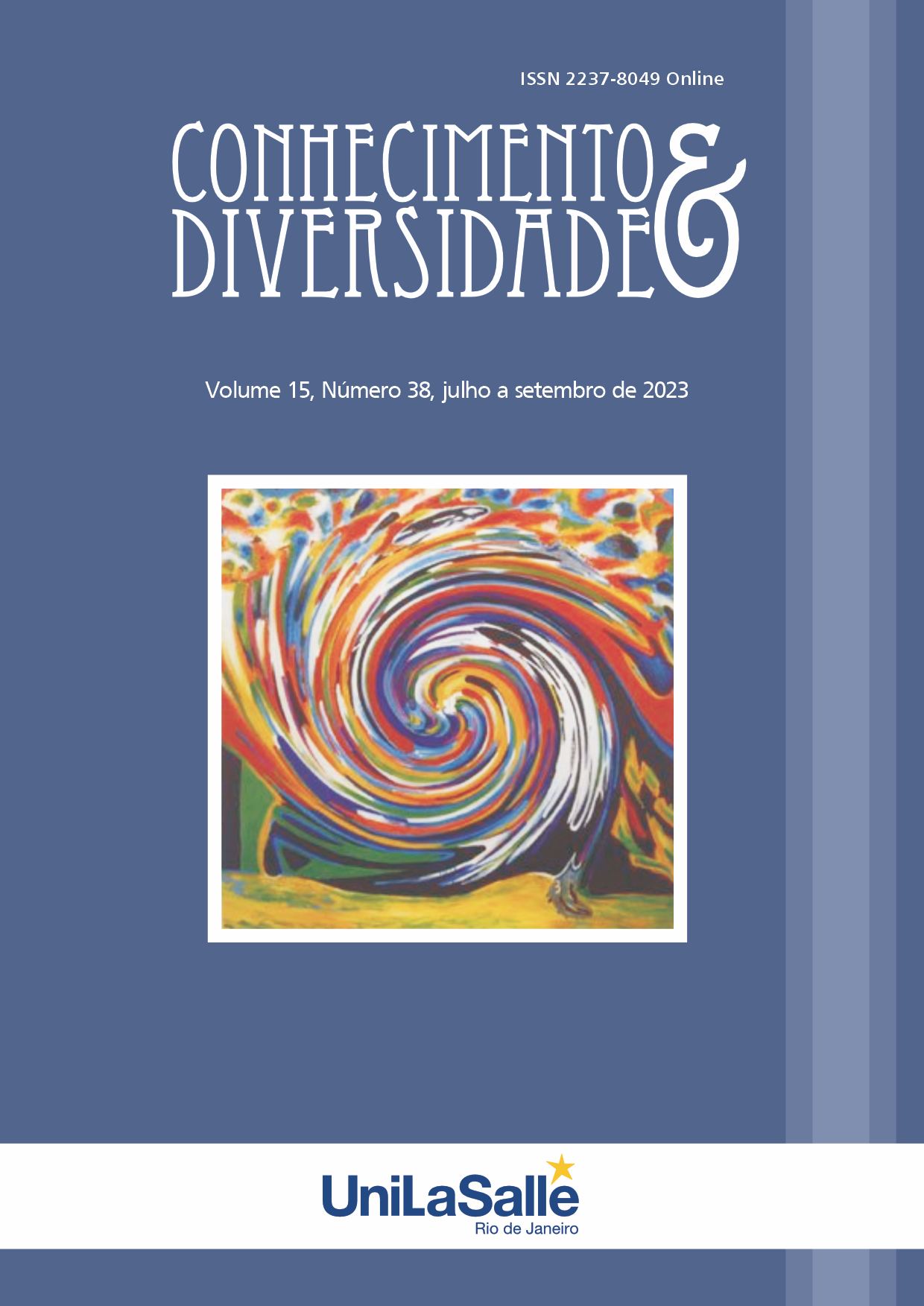DIGITALIZING EDUCATION IN THE AGE OF PANDEMICS:
A STUDY OF THE TRANSFORMATIONAL EFFECTS of COVID-19
DOI:
https://doi.org/10.18316/rcd.v15i38.11033Palabras clave:
Digitalization of education, Online educationRemote learningQuestionnaires, Analysis of attitude towards online learningResumen
The paper investigates the impact of the COVID-19 pandemic on the acceleration of digitalization processes in the field of education. Specifically, the study examines the development and improvement of online learning formats during this period, highlighting both the advantages and disadvantages, as well as identifying the bottlenecks and challenges that emerged. The paper presents the results of a survey conducted among Bachelor's and Master's degree students at the Faculty of Distance Learning at Plekhanov Russian University of Economics, categorized according to their areas of study, to determine the efficacy of remote learning processes and methods. Additionally, in-depth interviews were conducted to provide a more detailed analysis of the benefits and drawbacks of online learning, as well as potential solutions to improve remote learning processes. Overall, this paper offers valuable insights into the role of the pandemic as a catalyst for digital transformation in education, and provides recommendations for enhancing the effectiveness and efficiency of online learning.
Citas
Agranovich, M. (2020, May 21). Fal'kov V.: Uchebnyy god v vuzakh planiruyetsya nachat' 1 sentyabrya [V. Falkov: The academic year in universities is scheduled to begin on September 1]. Retrieved January 20, 2022 from https://rg.ru/2020/05/21/falkov-uchebnyj-god-v-vuzah-planiruetsia-nachat-1-sentiabria.html
Bouyahya, D. (2021). Reflective pedagogy within the new normal. University of Moulay Smail, Marocco. Retrieved February 2, 2022 from https://odr.rea.ru/media/reports/transformation-of-education.pdf
Chuang, I., & Ho, A. (2016). HarvardX and MITx: Four years of open online courses - Fall 2012 – Summer 2016. Retrieved from https://ssrn.com/abstract=2889436
Government of the Russian Federation. (2017). Decree of July 28, 2017 No. 1632-r “On approval of the program "Digital Economy of the Russian Federation”. Retrieved April 3, 2021 from http://pravo.gov.ru/proxy/ips/?docbody=&nd=102440918
Ito, H., Kasai, K., & Nakamuro, M. (2019). Does computer-aided instruction improve children’scognitive and non-cognitive skills, Evidence from Cambodia. RIETI Discussion Paper Series 19-E-040.
Kang, B. (2021). How the COVID-19 pandemic is reshaping the education service. In J. Lee, J., & S. H. Han (Eds.), The future of service post-COVID-19 pandemic. Vol. 1. The ICT and evolution of work (pp. 15-36). Singapore: Springer. https://doi.org/10.1007/978-981-33-4126-5_2
Kapranova, L. (2018). Tsifrovaya ekonomika v Rossii: Sostoyaniye i perspektivy razvitiya [Digital economy in Russia: State and development prospects]. Economy. Taxes. Right, 2, 58-69.
Kemp, S. (2020, January 30). Digital 2020. Global Digital Overview. Published in partnership with We Are Social and Hootsuite. Retrieved February 2, 2022 from https://wearesocial-net.s3-eu-west-1.amazonaws.com/wp-content/uploads/common/reports/digital-2020/digital-2020-global.pdf
Kolesnikova, K. (2021, January 12). V 2021 godu rynok onlayn-obrazovaniya v Rossii prodolzhit vzryvnoy rost [In 2021, the online education market in Russia will continue its explosive growth]. RGRU. Retrieved from https://rg.ru/2021/01/12/v-2021-godu-rynok-onlajn-obrazovaniia-v-rossii-prodolzhit-vzryvnoj-rost.html
Marinoni, G., Van't Land, H., & Jensen, T. (2020). The impact of Covid-19 on higher education around the world. IAU Global Survey Report. Retrieved from https://www.iau-aiu.net/IMG/pdf/iau_covid19_and_he_survey_report_final_may_2020.pdf
Ministry of Education and Science of the Russian Federation. (n.d.). Priority project "Modern digital educational environment in the Russian Federation". Retrieved April 3, 2021 from http://neorusedu.ru/
Mishra, L., Gupta, T., & Shree, A. (2020). Online teaching-learning in higher education during lockdown period of COVID-19 pandemic. International Journal of Educational Research Open, 1, 100012. https://doi.org/10.1016/j.ijedro.2020.100012
National Research University Higher School of Economics. (2020). Conclusion of the National Research University Higher School of Economics on the draft Federal Law "On the federal budget for 2021 and for the planning period of 2022-2023". Retrieved from http://komitet-bn.test.km.duma.gov.ru/upload/site7/NIU_VShE.pdf
Nedelkin, A. A., & Romanova, Y. D. (2018). Digital technologies in modern educational institutions [Tsifrovyye tekhnologii v sovremennykh obrazovatel'nykh uchrezhdeniyakh]. Economics and Management: Problems, Solutions, 3(1), 79-84.
Rambler. (2020, April 9). Uchenyye sravnili effektivnost' ochnogo i onlayn-obucheniya [Researchers compared the effectiveness of face-to-face and online learning]. Retrieved from https://news.rambler.ru/education/43978396/?utm_content=news_media&utm_medium=read_more&utm_source=copylink
Reich, J., & Ruipérez-Valiente, J. A. (2019). The MOOC pivot. Science, 363(6423), 130-131. http://dx.doi.org/10.1126/science.aav7958
Ribeiro, R. (2020, April 14). How university faculty embraced the remote learning shift. EdTech Magazine. Retrieved from https://edtechmagazine.com/higher/article/2020/04/how-university-faculty-embraced-remote-learning-shift
Zhenova, N. A. (2017). Nepreryvnoye obucheniye dlya biznesa [Continuous learning for business]. Distance and Virtual Learning, 5(119), 119-125.
Descargas
Publicado
Número
Sección
Licencia
Derechos de autor 2023 Vera Gerasimova, Yulia Romanova, Marina Melamud

Esta obra está bajo una licencia internacional Creative Commons Atribución 4.0.
Tal como recomienda el Public Knowledge Project, RCD adopta para sus artículos una licencia CREATIVE COMMONS: Attribution CC BY 4.0
Esta licencia permite que otros distribuyan, remezclen, adapten y desarrollen su obra, incluso con fines comerciales, siempre que le atribuyan a usted el mérito de la creación original.
Esta es la licencia más adecuada que se ofrece.
Recomendado para la máxima difusión y utilización de los materiales bajo licencia.



